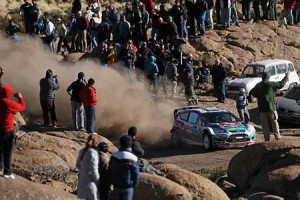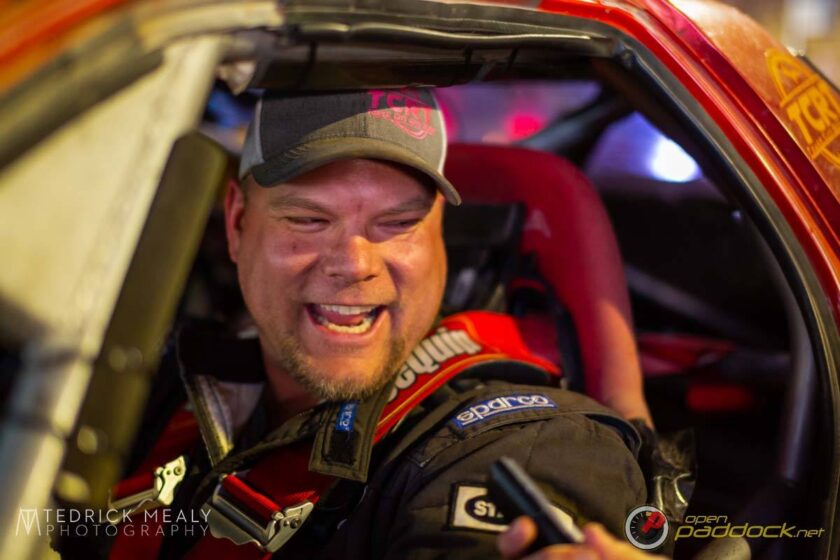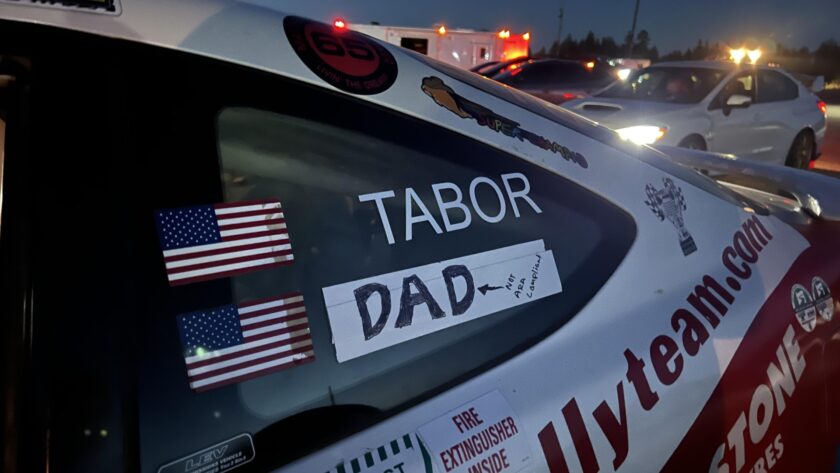 FROM: Abu Dhabi Ford Ford Abu Dhabi World Rally Team faces the toughest round of the FIA World Rally Championship in Greece next week intent on extending its excellent record in one of the series’ classic fixtures. Intense heat and rocky mountain tracks make the Acropolis Rally (16 – 19 June) a gruelling test of man and machine, but Ford has won there seven times in the last 10 encounters.
FROM: Abu Dhabi Ford Ford Abu Dhabi World Rally Team faces the toughest round of the FIA World Rally Championship in Greece next week intent on extending its excellent record in one of the series’ classic fixtures. Intense heat and rocky mountain tracks make the Acropolis Rally (16 – 19 June) a gruelling test of man and machine, but Ford has won there seven times in the last 10 encounters.
The rally returns to the series after a year’s absence and this seventh round marks the halfway point of the 2011 season. Mikko Hirvonen and Jarmo Lehtinen lie second in the drivers’ standings, while the Finns and team-mates Jari-Matti Latvala and Miikka Anttila have propelled the Ford Abu Dhabi squad into second in the manufacturers’ points with the Fiesta RS World Rally Car.
The challenges posed by the Acropolis are physical and mechanical. Air temperatures in the gravel speed tests near the rally base of Loutraki, 90km west of Athens, are likely to exceed 30ºC, with cockpit temperatures well above that. Driver fitness is crucial, especially in the longer tests, and regular fluid intake is vital to stave off dehydration to ensure the crew operates at peak performance.
Mechanically, success in Greece demands a blend of strength, reliability and speed. The heat that affects human performance also places high demands on engines and gearboxes, with little cooling from the flow of air in the relatively slow winding, climbing mountain special stages.
The gravel roads in the Acropolis have a fearsome reputation. While the tracks are less rough than they were, cars must still withstand severe punishment from rocks which litter the surface, as well as unyielding bedrock which forms the basis of the region’s loose surface roads. The combination of heat and abrasive stages will also demand strong durability from Michelin’s tyres.
Hirvonen knows what it takes to win the Acropolis, having stood on the top step of the podium when the rally was last held in 2009. Thirty-year-old Hirvonen has seven starts to his name and said: “Years ago all the stages were rough and abrasive. Today there are some smooth sections but there are many rocks – and it’s still hot!” he said.
“If you’re lucky you can survive for three days driving flat out from start to finish. But there are plenty of places where you must be careful and it pays to be smart. It’s vital to think about how to drive here, as well as doing the actual driving. Ford has always built strong, reliable rally cars and after testing in Greece last month, I know the Fiesta RS WRC lives up to that.
“The heat is a big challenge. It’s essential to drink a lot before the rally to be properly prepared. It also helps to be in good physical shape, although that’s a requirement for every rally. I plan to do some exercise when I arrive in Greece to help acclimatise to the temperatures there,” he added.
Latvala, fourth in the drivers’ championship, claimed his best Acropolis result in six starts in 2009 when he finished third. The 26-year-old Finn also acknowledges how tough the rally is.
“Greece is the hardest round of the season,” he admitted. “There were many retirements in 2009 due to the rough conditions. There are sections in which the roads are good and can be driven flat out. But there are also sections, especially in the second leg, where it will be essential to ease the pace to protect the car and tyres because of the rocks. The fastest car and driver might not win – it could be the one that is the strongest and cleverest.
“We tested in Greece last month and the Fiesta felt strong on the rocky tracks. We also tested in darkness to prepare thoroughly for the night stage during Saturday’s second leg. That test could be decisive. If there is no breeze late in the evening then dust could be a problem for all except the first car in the running order. It could generate a big difference in times,” he added.
Team News
* Michelin’s Latitude Cross gravel tyre will be used by the Ford Abu Dhabi drivers and will be available in hard compound only. Teams are not allowed to hand-carve additional cuts into the tyres and each car can carry two spare wheels.
* Eight other Fiesta RS WRCs are entered. Matthew Wilson / Scott Martin and Mads Østberg / Jonas Andersson are nominated by the M-Sport Stobart Ford team, which has also entered Henning Solberg / Ilka Minor and Evgeny Novikov / Denis Giraudet. Dennis Kuipers / Frederic Miclotte and Rene Kuipers / Annemieke Hulzebos are entered by the FERM Power Tools World Rally Team while Munchi’s Ford World Rally Team will be represented by Federico Villagra / José Diaz. Competing on their home event will be the Team Greece pairing of Lambros Athanassoulas / Nikolaos Zakheos.
* The Acropolis is the fourth round of the S-WRC support category. Five Ford Fiesta S2000 cars are entered, including Martin Prokop / Jan Tomanek and Ott Tanak / Kuldar Sikk, who are level on points at the head of the championship.
* Following the Acropolis Rally, the team will step up its preparations for the asphalt rallies during the second half of the season. A four-day test will be held on sealed-surface roads in France on 27 – 30 June, with Latvala and Hirvonen behind the wheel for two days each.
Rally Route
Organisers have retained much of the 2009 format, when the rally base moved from Athens to Loutraki, while also introducing several new aspects. Thursday’s start ceremony returns to the rally’s spiritual home, at the foot of the spectacular Acropolis in central Athens. Friday’s opening leg heads north around the Gulf of Corinth to tackle classic stages on the flanks of Mt Kallidromo that have not been used since 2005. There will be a remote service area in Kamena Vourla. Saturday’s route journeys west across the Corinth Canal for stages in the Peloponnese peninsula and the final test will take place in darkness. The final leg on Sunday is based east of Loutraki and includes the final Power Stage, which offers bonus points to the fastest three drivers. Competitors tackle 18 stages, covering 348.80km in a route of 1217.82km.



